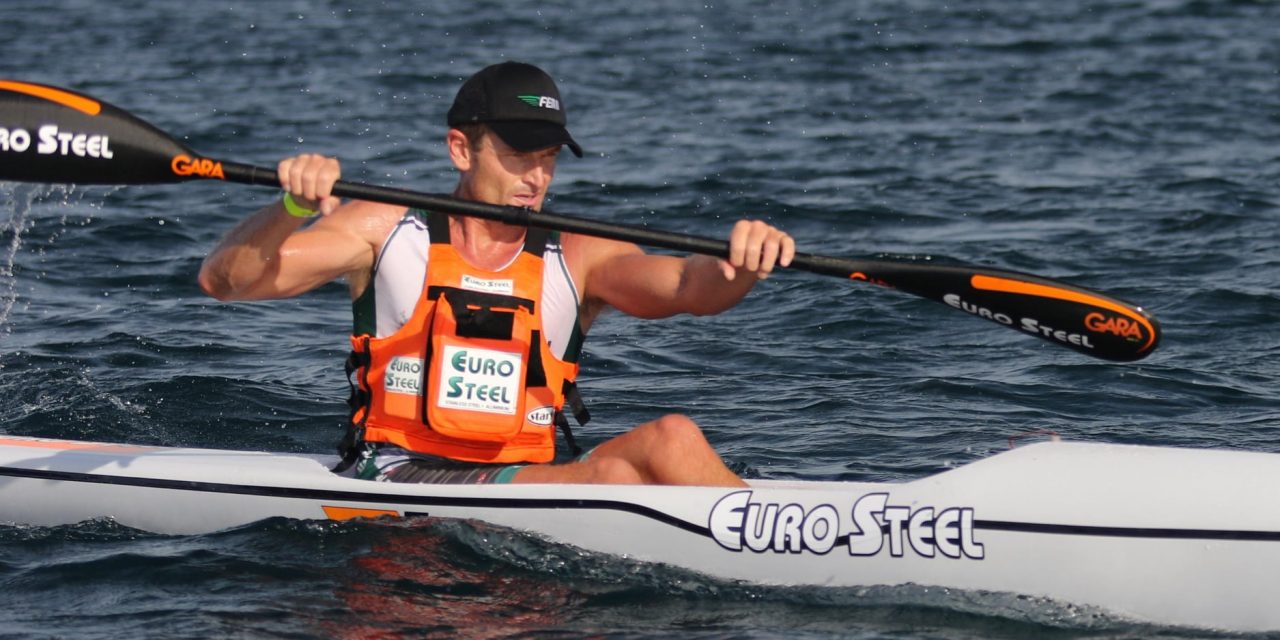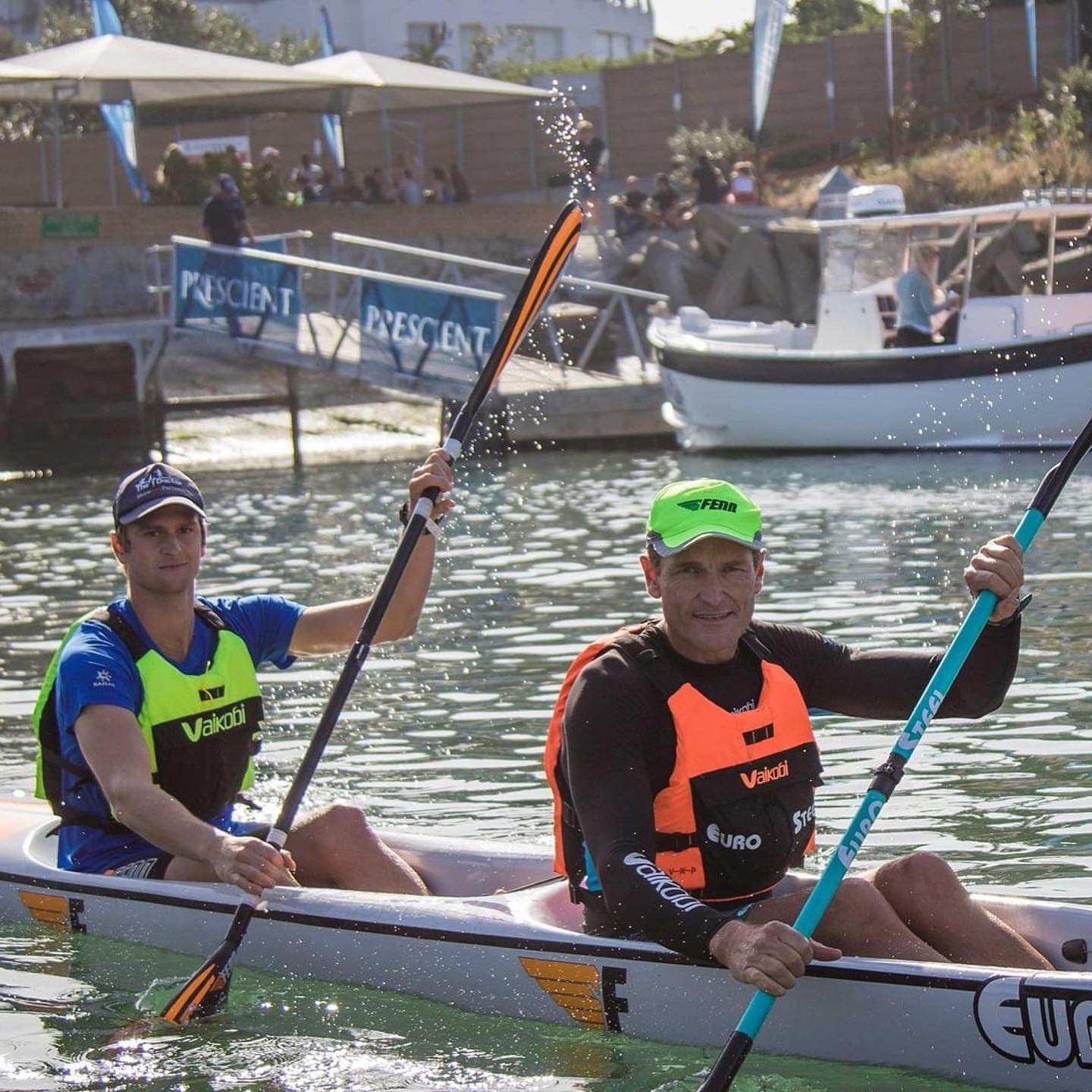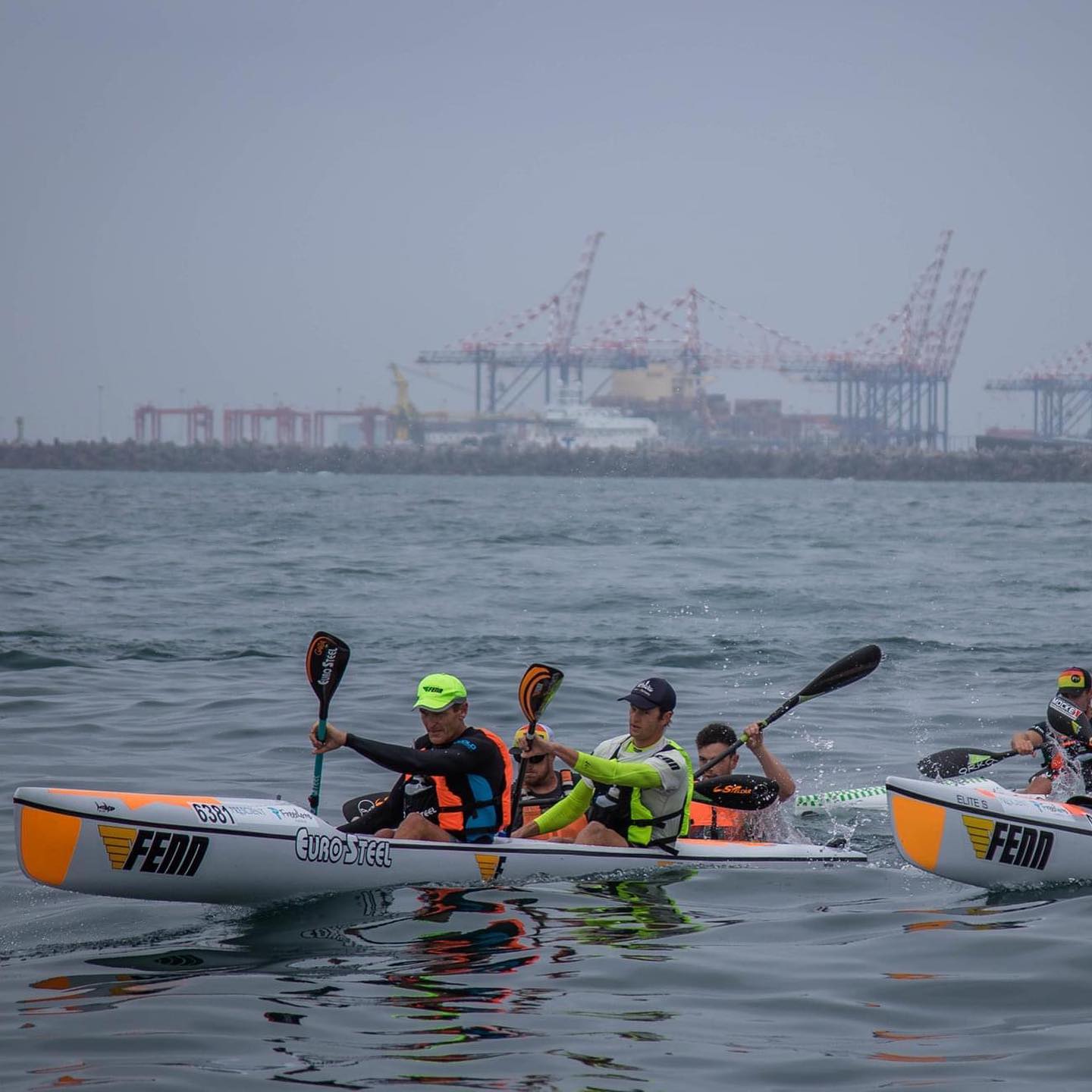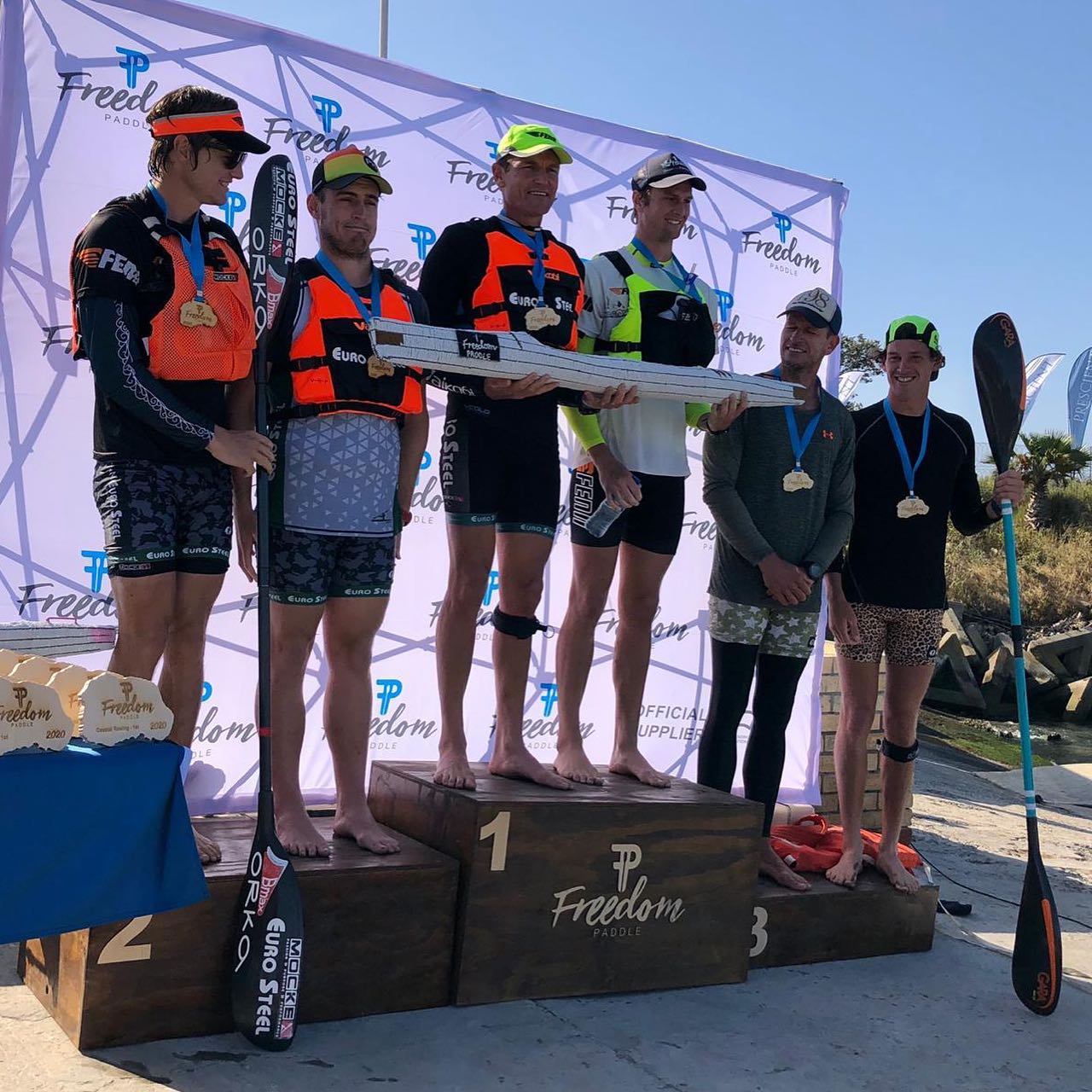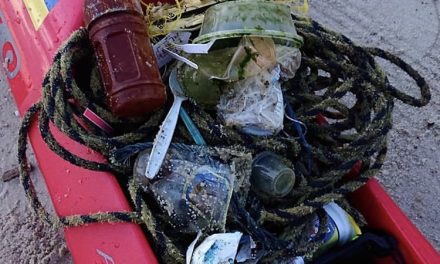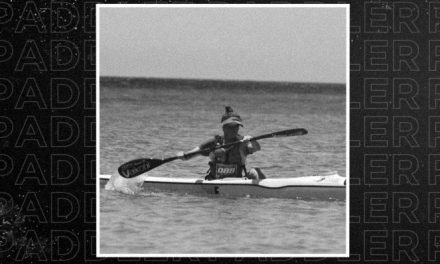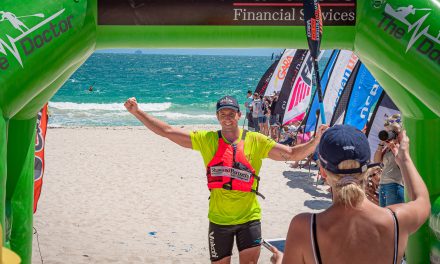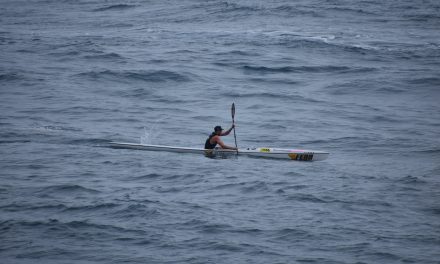McGREGOR BACK ON TOP AFTER TOUGHEST YEAR OF HIS CAREER
Hank McGregor has won so many South African titles, he’s almost lost count.
“I think it’s somewhere in the fifties,” he says after a pause. “Definitely in the fifties.”
So when he says this about his latest national triumphs – the single and double surfski crowns, as well as the marathon K2 – you get an understanding of just how much they mean.
“I would say it was actually bigger for me to win those than it was to win them the first time around,” McGregor admits.
“I felt vulnerable, I’ll be honest. I wasn’t comfortable given my lack of racing.
“When I raced at the 20 Beaches last December, it was the worst I’ve ever felt in an event.
“To have those doubts in your mind for so long, and to then produce the goods and come away with the title, it was so great.
“It just gave me such a boost physically and mentally to know that I’ve bridged that gap again.”
That gap could be better described as an abyss.
12 months ago, McGregor was bedridden with shingles.
In what would usually the busiest time of his international racing calendar, he was instead forced to watch from a distance – the first time he’s faced such a roadblock.
“It really knocked me physically, as well as mentally,” he tells The Paddler.
“I still get the symptoms now and again – I think just with the nerve damage it’s going to be with me for a very long time.
“But ironically, it was actually a motivator because it made me remember how much I love the sport and how much I just love paddling.
“Obviously you don’t want to be injured, but when something like that – a hurdle – comes along, it gives you that opportunity to ask yourself if you still want it and need it in your life.
“When you realise you do, it’s like a reboot.”
Initially, the reboot didn’t last long.
After months of rest and recovery, McGregor was finally ready to return to training when COVID-19 struck.
In an instant, he was back to square one – and this time questioning whether he had the motivation to return.
“I’d be lying if I didn’t say it,” he admits. “I’ve questioned it many a time.”
“But it reminds you that we only have one life – don’t take it for granted because you never know when somebody I going to take it away from you.”
“It was taken away from me last year, and look at COVID, it was taken away from me now.
“To get that opportunity to get out there and train and race again… go for it flat box!
“You can’t take that for granted and you can’t take your body for granted.
“If anything, I’ve come back stronger than I was in the past couple of years because my brain rebooted and my body has had time to recover.
“Who knows, maybe it’s given me extra years in the sport.
“But I know it’s definitely given me the hunger I was sort of lacking, to a certain degree.”
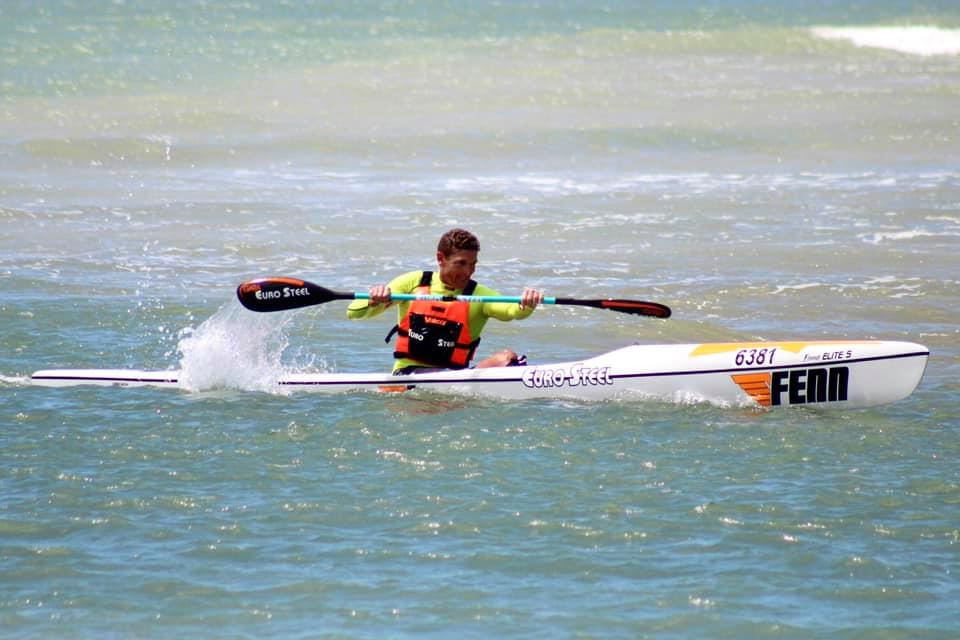
For his rivals, that’s a scary thought.
Even as a “young” 42 year-old, McGregor has emerged from his illness more passionate – and more determined – than he’s been in years.
That’s translated into physical strength – Hank believes that being forced off the water during lockdown allowed him to finetune his body in a way he hasn’t been able to before.
And for one of the world’s toughest athletes, it’s even translated into a new mental strength as well.
“As athletes, we might not think it, but we are super arrogant,” he says.
“When you do get that setback, you have to reassess all of your faults and what you can do differently.
“Normally you would carry on and blame the conditions, or the equipment, or even the program – and not look at yourself.
“It really humbled me as a person to know that I’m not superhuman and allowed me to reassess.”
For his endless fans and admirers, the unvoiced question is how long McGregor can continue.
He admits he gets a shock when he looks at the entry list of a race and realises he’s more than double the age of some of his competitors.
But stopping? That’s not a thought he’s fazed by.
If anything, it’s a source of bemusement.
“I’ve been told by institutes and the like for the past 10 years that after the age of 35, you lose a per cent [of performance] each year,” he says.
“But I think you gain a couple of per cent in wisdom and knowledge that can override that.
“This sport keeps me young. Just surrounding yourself with happy people and likeminded, happy and fit people keeps me young.”
“Everyone is going to get old, but age is just a number.
“How hard you train is what your true age is.”
And McGregor is certainly training hard.
While Australians and many other nations were free to paddle as usual, McGregor – and the rest of South Africa – watched on through social media, locked inside their homes.
Now, even with the uncertainty surrounding international racing, they’re making up for lost time.
“I think that actually benefitted us because we could fully recover,” he says. “Australians could still fully train, but they didn’t have the motivation.
“When we finally had the opportunity to train and get back into it, we did so flat out.
“Just because [Australians] had all of the equipment and opportunity to train, if you don’t have a reason to get out there and hurt, it’s almost worse.
“You don’t really train – you just tap through the motions and you’re only training to this imaginary rival.”
So, for an athlete who’s done it all, what does his future hold?
It’s the everlasting question, but given the past 12 months McGregor has endured, it’s not one he’s trying to answer.
“I don’t have a specific race that I’m targeting,” he admits.
“Last year, breaking the record at Molokai and beating Cory [Hill], who is a phenomenal athlete and always ensures there’s a joust between us… it’s pretty hard to motivate yourself to go back there and better it, because you captured it there and then.
“With social media now and things like thepaddler.news showcasing all of these races and things going on around the world, it just makes you really amped for paddling.
“I’m not taking anything for granted and I’m not going to say, ‘yep, that’s the one I’m going for.’”
“I just appreciate getting out there and racing and enjoying the vibe.
“It’s not always about winning – it’s doing your best, feeling good about yourself and enjoying what the sport provides and the people that come with it.”
“That’s what really motivates me… when I stop enjoying that, then I’ll hang the paddle up.”

